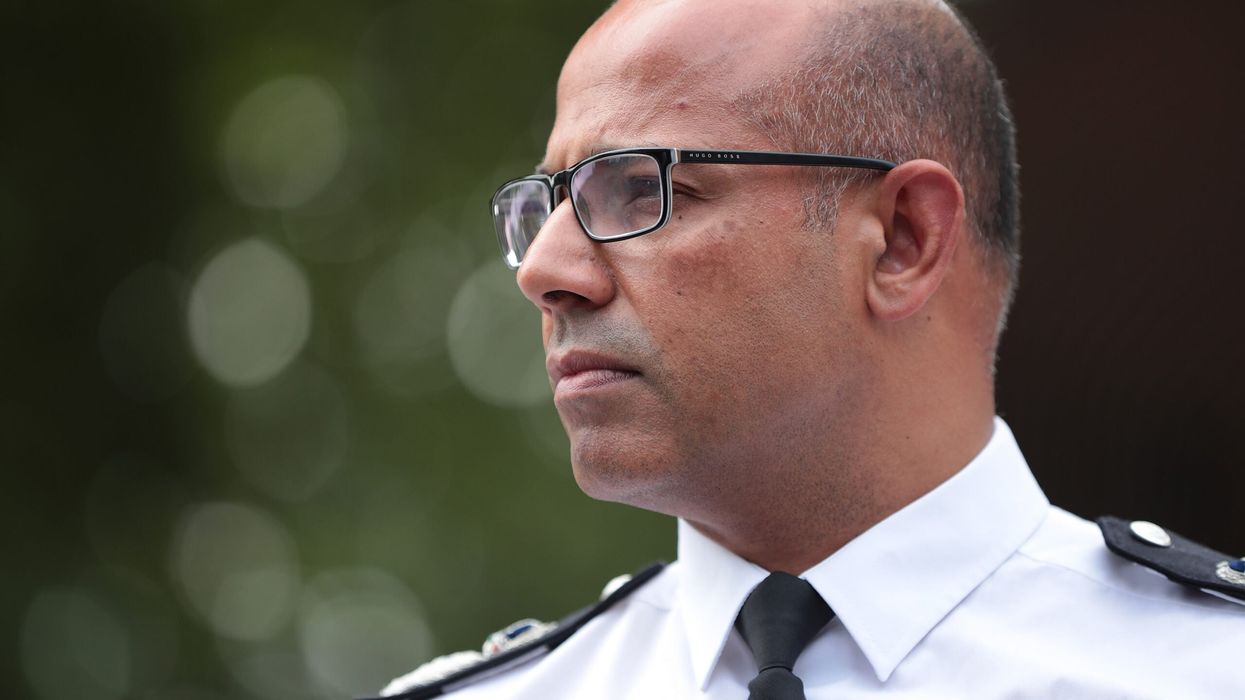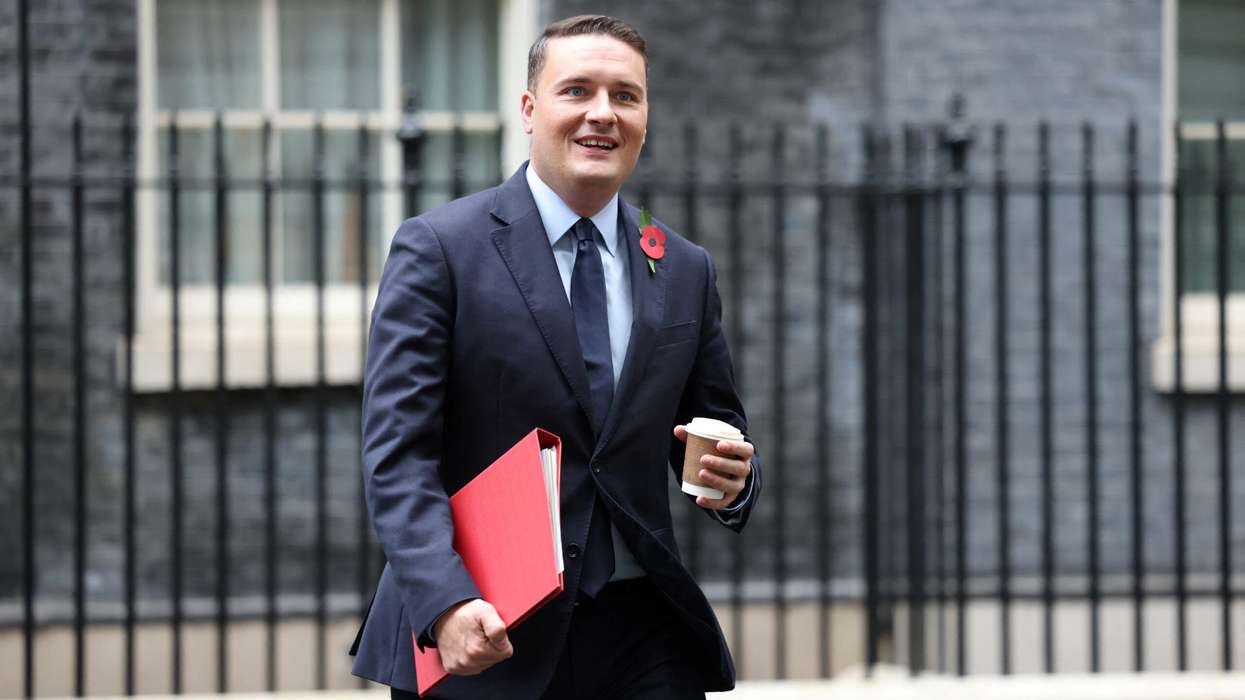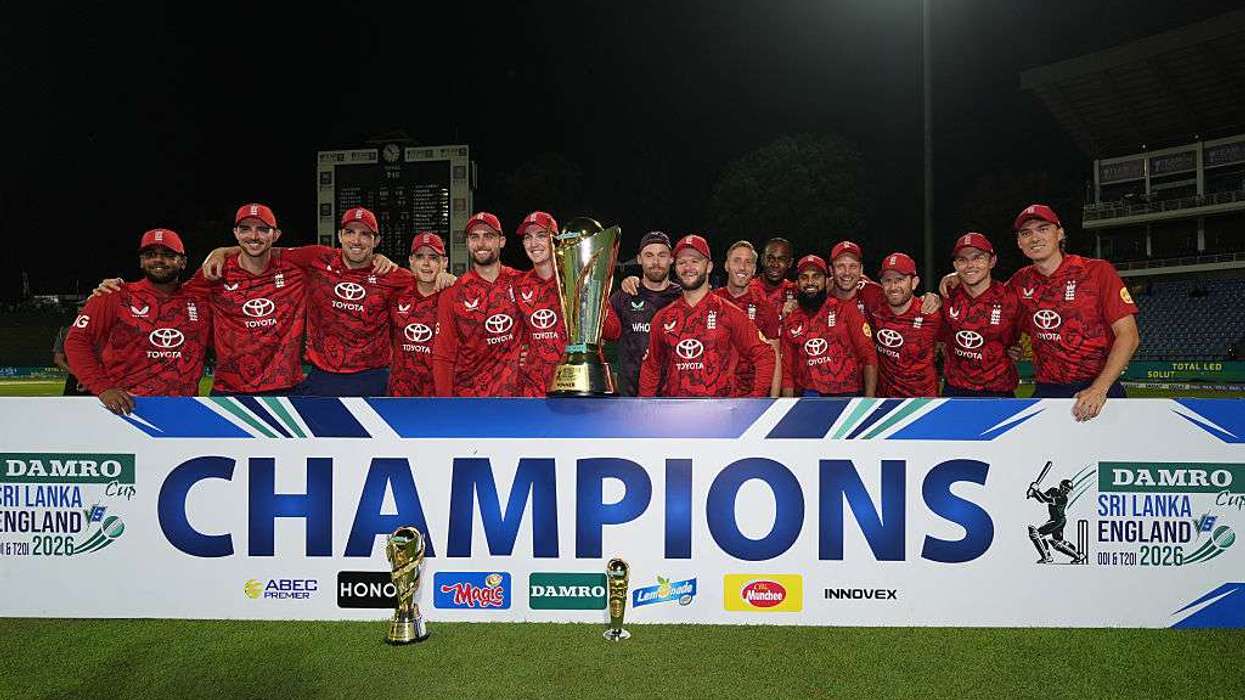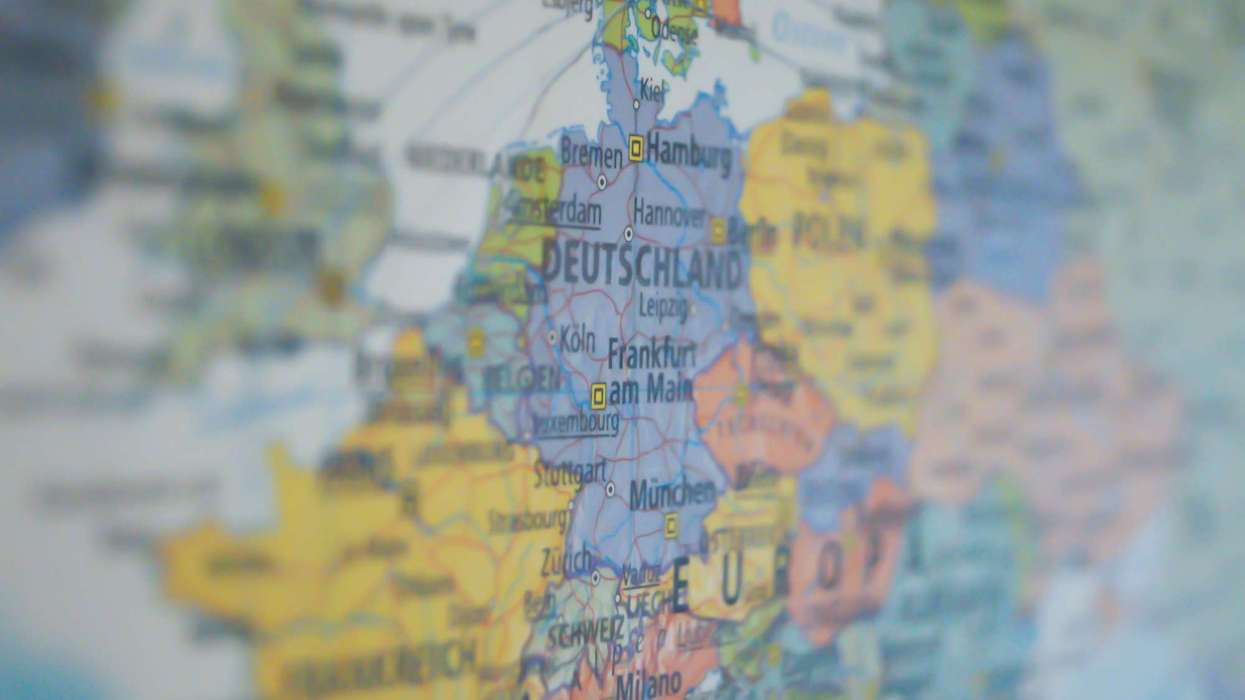RACIST politicians are fomenting racial tensions by pandering to their fringe extreme far-right constituents, Britain’s former top south Asian police officer has told Eastern Eye.
During 10 days of terror and violence, white rioters of all ages and gender threw bricks at riot squad officers, stoned mosques, looted shops, set alight a hotel housing asylum seekers and chanted racial slurs.
The troubles stretched from Sunderland in the north-east of England to Plymouth in the south west, via Birmingham in the West Midlands.
They began the day after the fatal stabbings of three children in Southport on Merseyside last month (29).
Police believe extreme far-right groups from outside the affected cities and towns used the killings as an excuse to cause trouble.
“Far right is how I would describe Nigel Farage and Lee Anderson,” said Neil Basu, the former Metropolitan Police assistant commissioner, when describing the two Reform UK party MPs.
“They know that their rhetoric against immigration and anti-Muslim, anti-Islam rhetoric is dangerous, but they continue to use it.
“They were elected to serve the people who voted for them, and the 4 million people who voted for Reform will not all be far right.
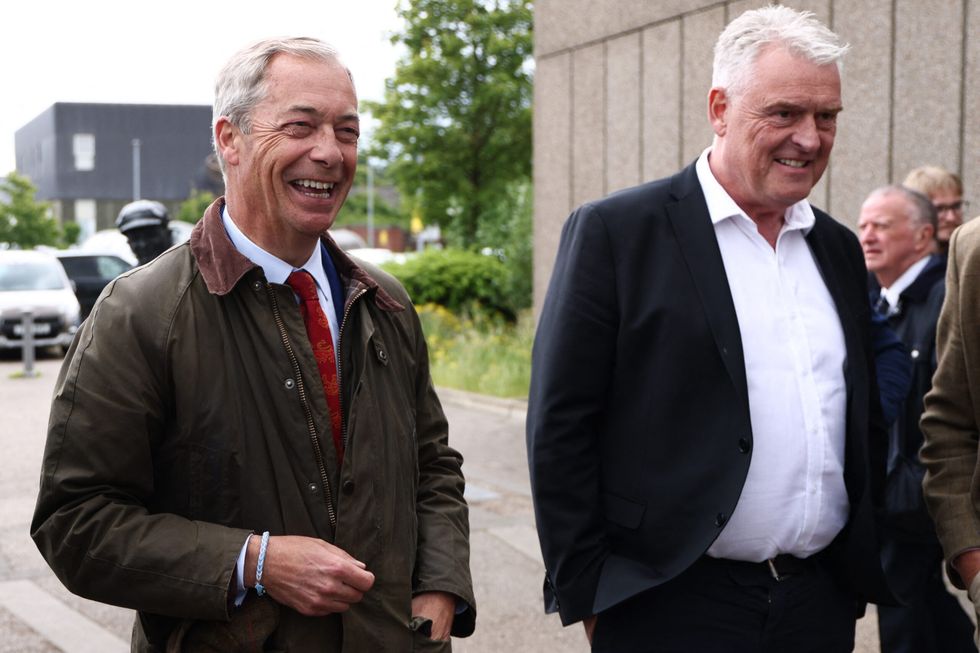
“This spectrum of people goes from centre-right-one-nation-Conservatives, who are not very far from centre left people who may have a concern about levels of immigration and levels of resourcing to deal with that, and who are not racist, to right wing politicians who say we have a legitimate right to talk about these issues in public, we should be able to debate them.
“To far-right politicians who, in my view, are overt racists, who are making images and (using) rhetoric and language and using their platform to stir up hatred against race.
“That is incredibly dangerous.
“That's what I've warned about for years that we are mainstreaming those kinds of social influences, and at the far-far-right is the extreme right-wing terrorist.
“All four of those groups will have been represented across the country over the past two weeks, committing different levels of activity, from legitimate protest and peaceful protest, all the way up to egregious acts of what I have described as terrorism.”
Basu served as the head of counter terrorism in the UK between 2018 and 2021.
Harmful rhetoric
But he had been warning of the dangers posed by what he described as a “fringe element” of extreme right-wing activists since 2016.
The former cop of 30 years told Eastern Eye that the previous Tory administration refused to accept his analysis.
“You have to see the intelligence that I saw in my previous job,” he continued. “You have to see what some of this rhetoric does to people in the virtual world who plan to do violence and harm to people and property.
“And if you saw what I saw, and you had to deal with that 24/7, 365-days-a-year for seven years, you might have a slightly different view about the things you allowed yourself to say, with no filter, to the public.
“Now, the argument is, I shouldn’t have to filter myself for the extreme actions of a very small number of people.
“I should be allowed to say what I want.
“Now, you’ve never been allowed to say what you want, it’s a misnomer, that freedom of speech means you can say anything you like, we have laws that prevent it.
“What I’m saying is, is society thinking that those laws are sufficient to deal with people who are influencing millions of people online with rhetoric that is simply hateful.
“If it comes just south of the criminal line, I should only be involved in conversations above the criminal line, I get it.
“I’m just asking politicians and society to debate where that line is.”
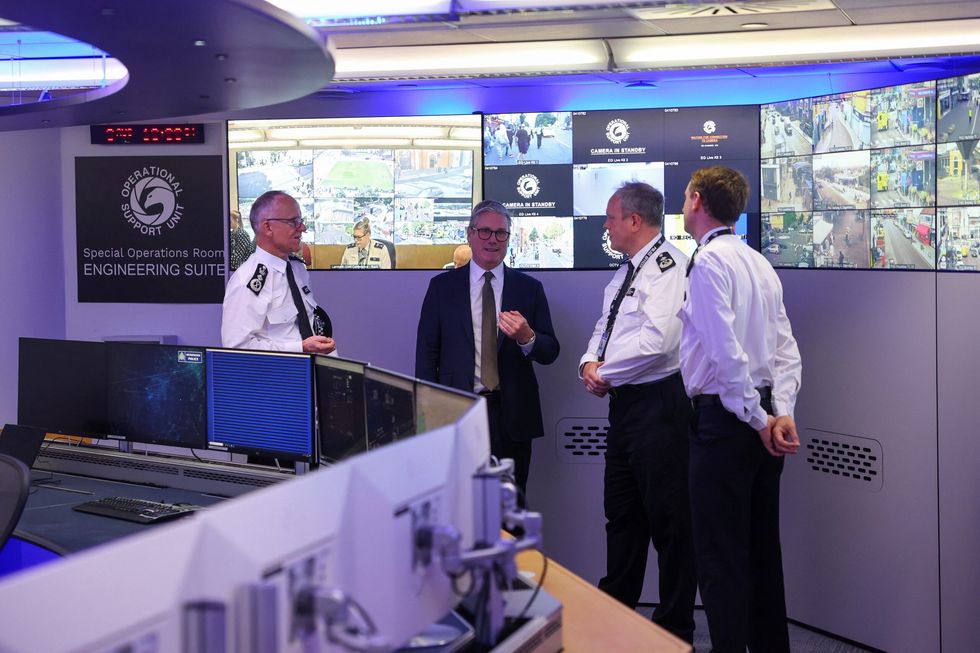
The former Met assistant commissioner for specialist operations agreed that far right politicians would accuse him of trying to erode their right to free speech.
So, how would he persuade Farage and Anderson to dial down their rhetoric?
“You’re asking me political questions, and I’m a former police officer,” Basu countered.
“If I had to answer that question, I would say that the one-nation-serious-professional-political-Conservatives that I grew up with were professionals who were capable of debating some of these issues, and who decided as a party.
“They wouldn’t follow Enoch Powell, Edward Heath sacked him.
“Margaret Thatcher used some of Powell’s language when she became the leader of the Conservative Party, but they decided not to follow that kind of extreme rhetoric.
“I think a Conservative Party which doesn’t win back the centre ground is ceding ground to people like Farage and Lee Anderson who are fermenting a kind of very, very dangerous and divisive politics that we don’t want to see in this country.”
“Lies”
Basu said he was extremely concerned by the demonisation of “brown skinned people”.
“I grew up in the 1970s in the shadow of the National Front, and it's the closest I've come to feeling as vulnerable as that.
“There'll be whole sections of the community, a lot of it was anti-Muslim hatred, but you don't know (whether) I'm a Muslim, unless you ask me, and I'm not.
“I'm an atheist, son of a Hindu, but I'm brown, so people like me walking down the streets, particularly of my age, will feel what it felt like in the 1970s.
“Now, our children haven't felt that.
“But something very strange has happened in our country over the past 10 days, and it's brought that feeling back.
“I think it will be a long time before that feeling dissipates, so there'll be an awful lot of trauma in communities for a long time to come, even though we’ve managed to keep the peace thanks to some brilliant work by my former colleagues and the criminal justice system stepping up.”
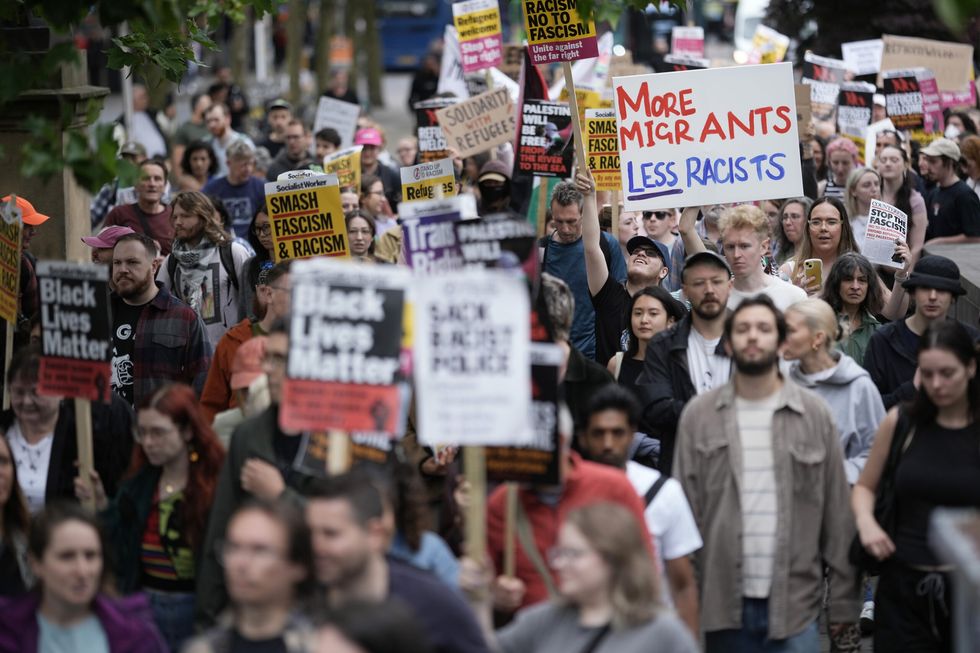
Police arrested a suspect, a 17-year-old named in court as Axel Muganwa Rudakubana.
Under British law, anyone under 18 is considered a child and should not be named.
But a judge lifted reporting restrictions to avoid speculation about the suspect’s identity.
This did not work.
Almost immediately after the fatal attacks in Southport, extremists took to social media to spread false information.
Influencers then amplified the claims about the accused, falsely describing him as a Muslim and asylum seeker, when in fact the teenager was born in Cardiff.
The English Defence League’s founder and convicted criminal Tommy Robinson, whose real name is Stephen Yaxley-Lennon, posted inflammatory messages to his nearly a million followers on X, formerly known as Twitter, while on holiday in Cyprus.
“I've always said freedom of speech is not some kind of inalienable right.
“It is not the freedom to do harm and where you are directly inciting hatred and violence, particularly if you are using lies to do that.
“We like to use misinformation and disinformation, don't we?
“I like to call those lies.
“If you want to use lies in order to stir up that kind of violence and hatred we've seen over the last 10 days, you should be doing time.”
Political solution
Basu also stressed that only politicians had the power to force social media companies to sit around a table and discuss the problems they were responsible for policing.
“When I was the head of counter terrorism for the UK, myself and my counterparts in Australia, the United States, New Zealand and Canada wrote to the big six social media companies asking for an audience, because we wanted to describe to them the evidence that we had that things that existed on their platforms were causing terrorism.
“They, quite frankly, ignored us.
“That's quite a thing to ignore the heads of counter terrorism for those five particular countries.
“But they did not ignore the attorneys general of those five countries.
“They came to meet them, and they came to discuss how legislation could be brought into practice to help them police their own sites.
“That was the start of a conversation quite some years ago that led to online safety acts in Australia that have been going for some time, and the online safety act in this country, which has only been enforced for a very short period of time, and it hasn't been fully enacted.
“It brought people to the table, and the only thing that will bring social media companies to the table is the potential of criminal sanction and the loss of reputation, which leads directly to the loss of revenue by their advertisers.
“You can't appeal to their social or moral conscience, that isn't working, it has to be the law.”
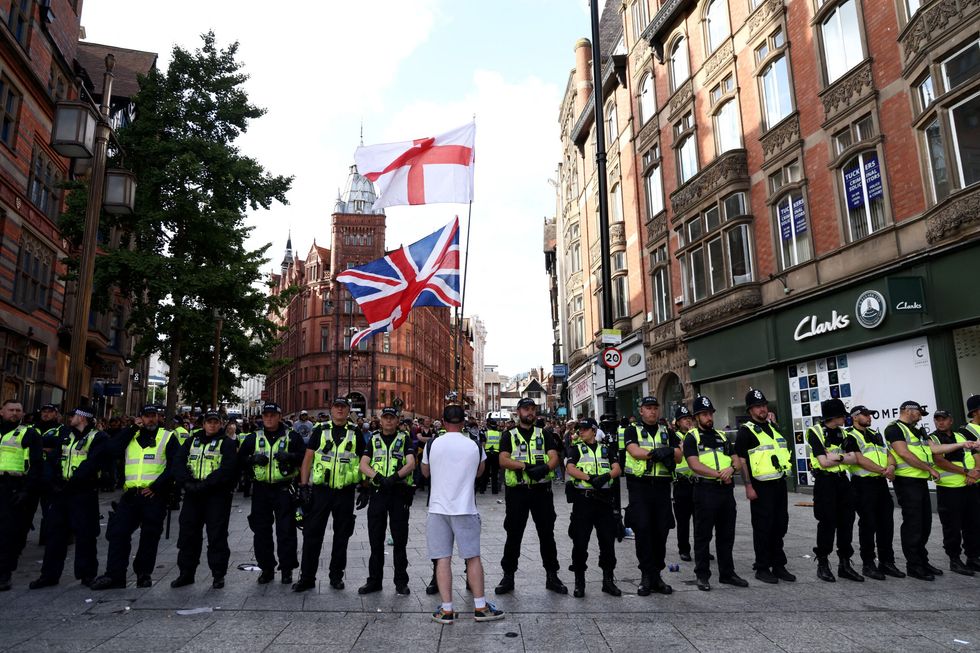
Basu said only politicians could stop the disorder from spreading, and he urged the new government to toughen up the online safety bill.
He described the violent protests as a “national security issue”, and as such the solution needed cross party support.
“It's (social media) become like the Wild West.
“But to publish material that incites racial hatred is a clear criminal offence, and people have been convicted of that in the past 10 days, and that is absolutely the right thing to do.
“One of the most difficult conversations we're having in a liberal democracy, is the line between freedom of speech and harm.
“In fact, the original online harms act brought in to try and bring some kind of law and order to social media has been watered down significantly.
“One of the ways it's been watered down was removing the clauses that related to what became termed ‘lawful but awful’, so effectively, it's not a criminal offense to say this.
“There's no freedom of speech without the freedom to be offensive, you have to be able to debate other people's offensive opinions.
“Obviously, if they commit a crime that's unacceptable, but I think where that bar is for crime is the one that society has to debate.
“Police officers can't do that, it has to be elected politicians, and the society they're elected by has to decide what freedom of speech really means.”
Economy
Politicians, he argued, should not be allowed to be presenters with editorial control on television news channels.
“It's up to other politicians to debate them in a reasonable and serious manner and expose their rhetoric for what it is.
“These people don't fact check anything, and they don't need to, because they have their own television station.
“That is a very dangerous place to be.
“I don't think elected politicians, whether they're from the left, the right, the Greens, should have a TV station in which they decide who comes on and debates, or, in fact, have no debate whatsoever, just gets a tool to put out their own propaganda which isn't fact checked or verified.
“In the current world we live in, that's a really dangerous thing to allow to happen.”
Ultimately, said Basu, the current problems were deep rooted in the country’s economy.
“It's the thing that has stirred up racial hatred and hatred of immigrants for years, when society has an issue with its economy, when people feel that there is a difference between them and others, when people feel like they are the have nots.
“They are looking at people who have things, they will always try and find a scapegoat for that.
“Historically, not just in this country but across the world, the scapegoat for that has been immigration, whereas actually it's poor economic circumstances, poor social mobility and inability to look after themselves because of the state of the economy.
“When the economy is booming, people don't talk about the hatred of immigration or racial politics, the two things tend to be connected.
“And 14 years of austerity means everything is broken for everybody.
“The point is you have to fix your public services and your economy for everyone, and it will stop people othering people as though they were to blame for the fact that we haven't got enough doctors, that we didn't build enough houses, that people simply don't have enough money in their pockets because of 14 years of austerity.”
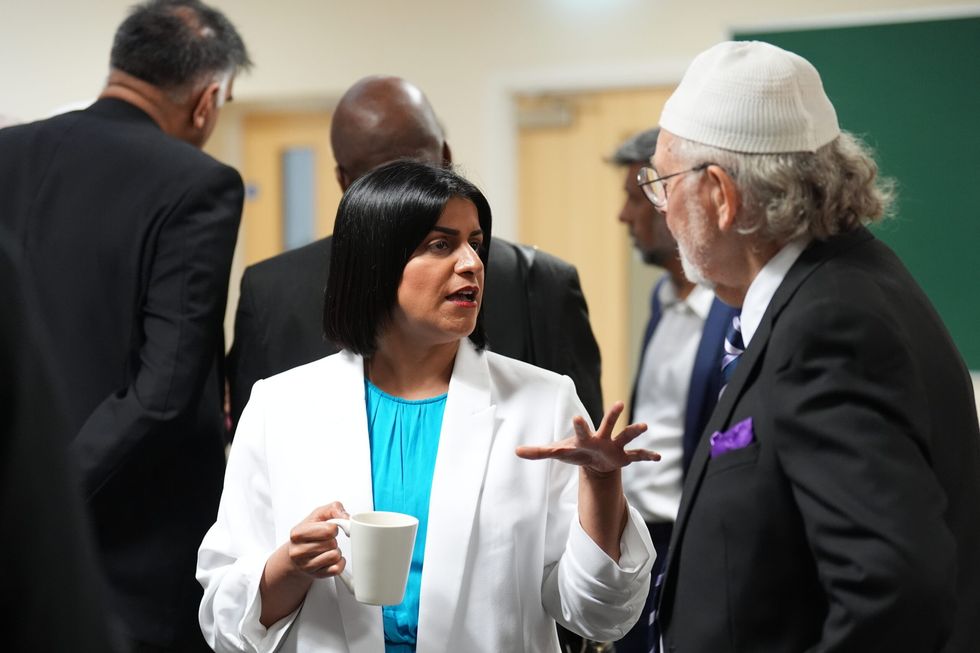
Basu argued that globally poor economies were producing problems which allowed extreme politicians to peddle extreme views that laid the blame on others, usually immigrants.
“A worldwide financial crash caused a terrible, terrible storm, and we've watched that be amplified by Brexit, amplified by the politics of [Donald] Trump that have been echoed both by some politicians here, which is an ‘othering’.
“It's an othering of people who look like you and me, and that's got to stop.
“The quickest way to stop it is bringing some kind of equality into society, which actually the previous government promised.
“That was the whole point of levelling up, and look where this message has been most keenly heard and felt.
“It's been in those communities who feel that they have been left behind.
“If you leave people behind, they will turn to people who are influencing them to say.
“This is the reason you've been left behind, and it is nothing to do with immigrants, but that's a very convenient rhetoric.”
Terrorism
Basu described attacks on mosques and hotels as terrorism.
He said there was a “thin blue line” between what was acceptable rhetoric and what was incitement to racial hatred.
That line was the glorification of terrorism and violence, Basu indicated.
“There is glorification for counter terrorism, and it has some very clear caveats that it has to be intentional and reckless.
“There are some caveats, like all laws, it's framed in a very, very discrete way.
“There is quite a gap before you reach that threshold where you can go online and effectively incite violence by making what look like very disingenuous innocent remarks and comments, but the effect in the real world is dramatic.
“Now, the argument, for a lot of those people, is, I'm not breaking any laws, I'm entitled to my opinion, and I'm just giving my opinion, I don't expect these people to use violence, and I will say that we're not using violence.
“They are skirting that edge of the law.
“If you had a definition for hateful extremism, which actually called out extremist rhetoric that is likely to lead to violence against people and property, that would be the gap that Sara (Khan) was trying to close in her report.
“That would give police the power to go after people with much more serious consequences than, for instance, malicious communications.”
In March 2021, a previous prime minister, Boris Johnson, appointed Dame Sara Khan as the government’s independent adviser for social cohesion and resilience.
He tasked her with producing an independent review with recommendations to counter extremism.
Her report was finally published in April 2024.
Police across the country have arrested more than 400 rioters who are being fast-tracked through the courts.
The prime minister, Keir Starmer, made the pledge for “swift justice”, just as he did when he was the director of public prosecution during the 2011 riots in London.
Judges have sentenced several rioters to between two and three years for violent disorder.
But critics have dismissed it as “two-tier justice” because they believe the police and the criminal justice system treat communities of colour more favourably than white offenders.
“I hate that two-tier expression,” said Basu.
“The two-tier policing system is generating violence towards my former colleagues.
“The commissioner of the Metropolitan Police said as much, and it's a really dangerous thing to fuel that perception.
“Officers have to police without fear or favour.
“There have been times in history where policing hasn't done that, and it's ruined their trust and confidence in communities.
“I don't believe that's the police service I served in at the end of my career, or the one that is currently trying to keep the peace on the streets of the United Kingdom, I think they are serving without fear or favour.
“If you're going to go out and commit criminal acts, it doesn't matter what cause you're promoting, whether it's anti-immigration or anti-racist, then you're going to have to be dealt with by the full force of the law, and I think we have seen that.
“Public order has been described like brain surgery, it's an incredibly difficult thing to do, and tactics vary depending on the situation and the numbers.
“I think that has created a gap for extremists to exploit and to call it two-tier.”
As a police officer, Basu was not allowed to express political opinions.
Great Britain
Even today, he refuses to take political sides.
But the former police chief said he was happy with the new prime minister’s actions so far.
“One of the things I'm most grateful for is that he (the prime minister) has treated policing and the criminal justice system as an equal partner.
“He invited people in, he didn't summon them and direct them to do things.
“He invited them in listen to their expertise, asked them to do a job that he fully supported, and he asked the criminal justice system to step up quickly, so he regained control of the streets quickly.
“I can't lecture him on that, he did a brilliant job there, as did all of my former chief constable colleagues.
“My heart goes out to all of those police officers who put their bodies on the line for people they barely knew, just like cops always do.
“And by the way, a little shout out for black and Asian police officers who were a target when they were on the front line, and the day they got home and took their uniform off, were a target again.”
Throughout the interview with this paper, Basu repeated that what Britain witnessed was “a fringe problem”, and he stressed how immensely proud he was to live here.
“I'm in my 57th year in this country, having been born and brought up here, I've got ‘Made in England’ right through me.
“I experienced my first memories of racism at four years old.
“I don't appreciate people stirring up racism, I thought we had beaten that as a country.
“We should debate against it, and the vast majority of people who protested against racism in the past two weeks proved they can do it reasonably and lawfully.
“I've not seen an anti-immigration protest outweighing an anti-racist protest.
“I have not seen that because that's not what this country is, it isn't.
“I sort of disagreed with the party who tried to dismiss the rise of the far right in terms of that wouldn't happen in this country.
“My view to that was it will happen in this country, it's happening under your noses, and it will get worse unless you do something about it.
“But actually, it is not the fabric of this great country, it just isn't, and that's why I love living here.”
